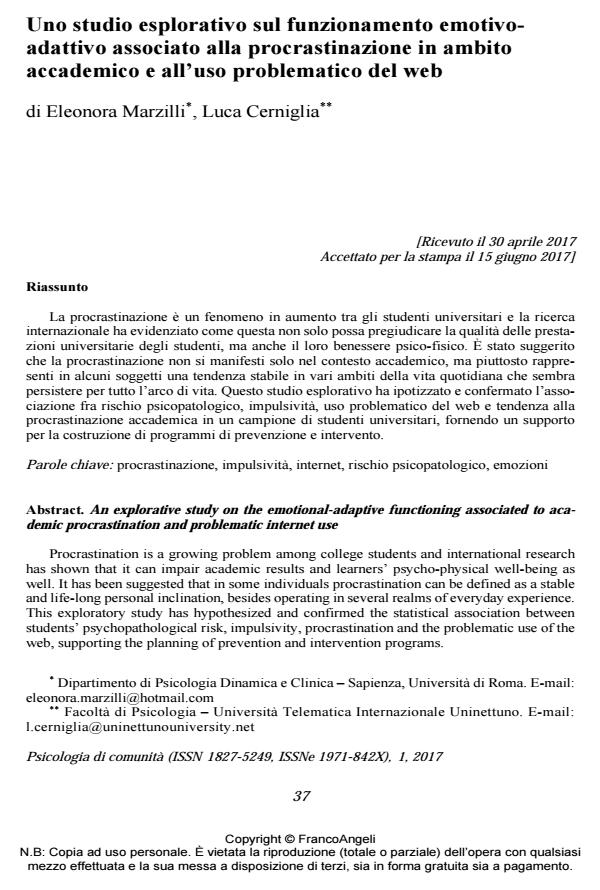An explorative study on the emotional-adaptive functioning associated to academic procrastination and problematic internet use
Journal title PSICOLOGIA DI COMUNITA’
Author/s Eleonora Marzilli, Luca Cerniglia
Publishing Year 2017 Issue 2017/1
Language Italian Pages 11 P. 37-47 File size 174 KB
DOI 10.3280/PSC2017-001004
DOI is like a bar code for intellectual property: to have more infomation
click here
Below, you can see the article first page
If you want to buy this article in PDF format, you can do it, following the instructions to buy download credits

FrancoAngeli is member of Publishers International Linking Association, Inc (PILA), a not-for-profit association which run the CrossRef service enabling links to and from online scholarly content.
Procrastination is a growing problem among college students and international research has shown that it can impair academic results and learners’ psychophysical well-being as well. It has been suggested that in some individuals procrastination can be defined as a stable and life-long personal inclination, besides operating in several realms of everyday experience. This exploratory study has hypothesized and confirmed the statistical association between students’ psychopathological risk, impulsivity, procrastination and the problematic use of the web, supporting the planning of prevention and intervention programs.
Keywords: Procrastination, impulsiveness, internet addiction, psychopathological risk, emotions
Eleonora Marzilli, Luca Cerniglia, Uno studio esplorativo sul funzionamento emotivo-adattivo associato alla procrastinazione in ambito accademico e all’uso problematico del web in "PSICOLOGIA DI COMUNITA’" 1/2017, pp 37-47, DOI: 10.3280/PSC2017-001004